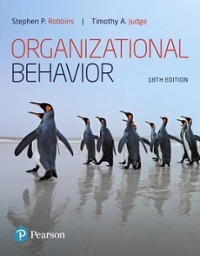Although many CEOs are fired for political reasons and power struggles, and others are fired for unethical
Question:
Although many CEOs are fired for political reasons and power struggles, and others are fired for unethical behavior, many choose willingly to leave their organizations. It is a difficult decision to make because not only do the leaders need to make the best decision for themselves, they also have many people in the organization who depend on them and their leadership skills to remain successful. Leader departures can cause subordinates who are attached to those leaders to become detached and to think about leaving as well. But one can understand why CEOs might leave or change careers. For example, Mohamed El-Erian, the CEO of Pimco, left the firm in 2014 when his daughter handed him a list before her bedtime. Her list included all the momentous events and activities that he missed in her life due to work commitments.
Not only does the CEO perhaps have an obligation to the company—the company also has an obligation to the CEO. Erika Andersen, a writer at Forbes, notes, “Top talent leave an organization when [it is] … badly managed and the organization is confusing and uninspiring.” These reasons can just as easily apply to leaders. A newer approach suggests that we should see turnover as inevitable, even for star performers. As Professor Finkelstein of Dartmouth College notes, “The bosses I studied also took advantage of a wonderful paradox: When you stop hoarding your people and focus on creating a talent flow, you find that more of your top people actually do wind up staying.” In addition, when these CEOs leave, they are added to the so-called alumni network and can become powerful allies for the organization in the future.
Questions
1. What do you think a CEO or leader should do prior to considering leaving the organization? What does the CEO or leader owe the employees? Why?
2. Do you think there is an appropriate time for a CEO or leader to consider or announce leaving the organization? What are some examples of times when he or she should not leave? What about examples of the best times for a CEO to leave?
3. What can organizations do to retain their CEOs and leaders? Is this an exercise in futility (in other words, is it meaningless to try to do anything)? Why or why not?
Step by Step Answer:

Organizational Behavior
ISBN: 9780134729329
18th Edition
Authors: Stephen RobbinsTimothy JudgeTimothy Judge, Timothy Judge





